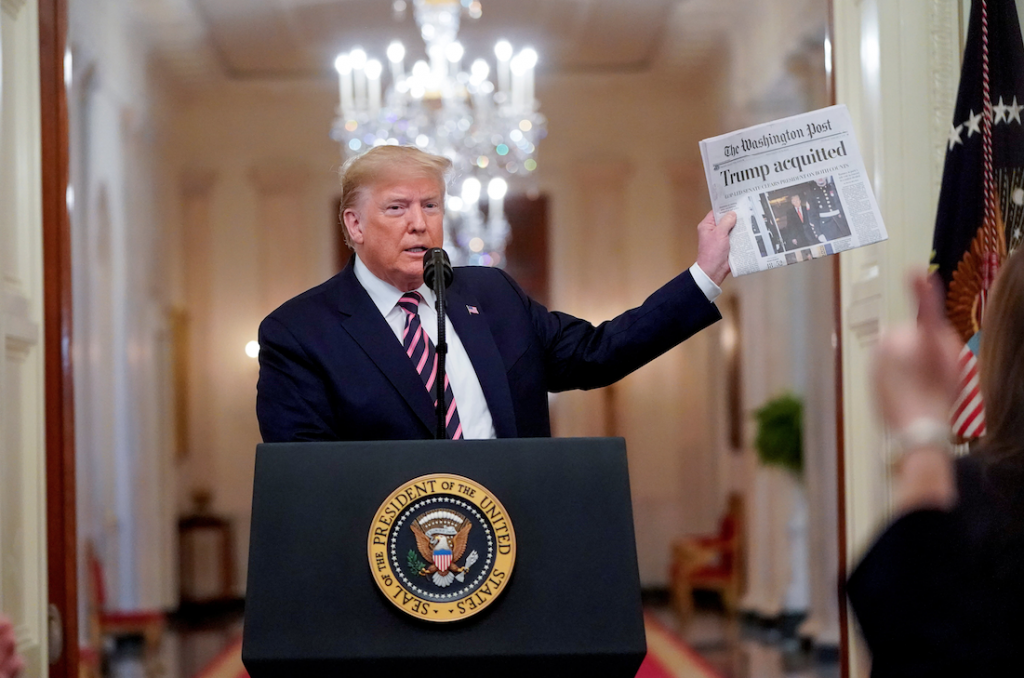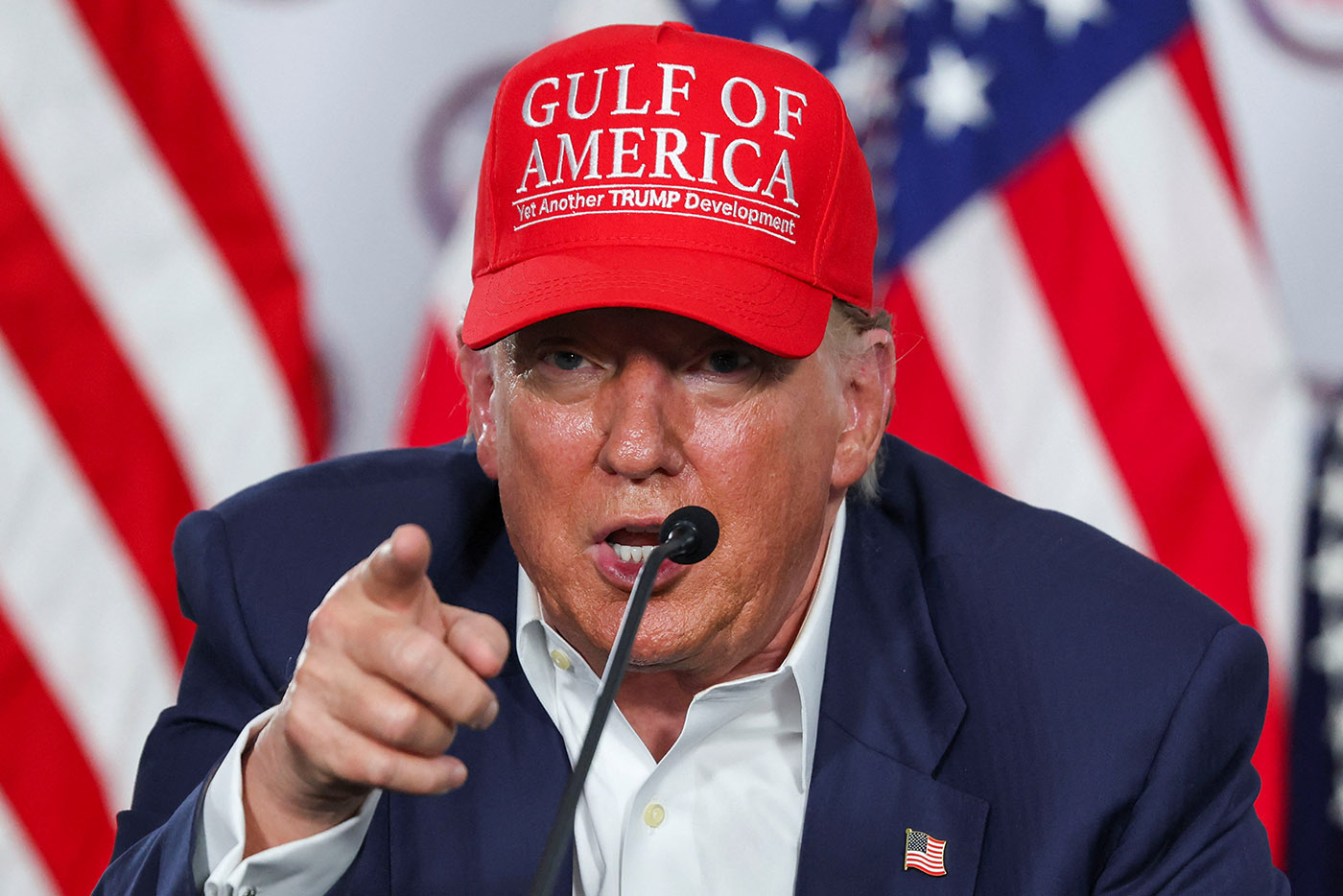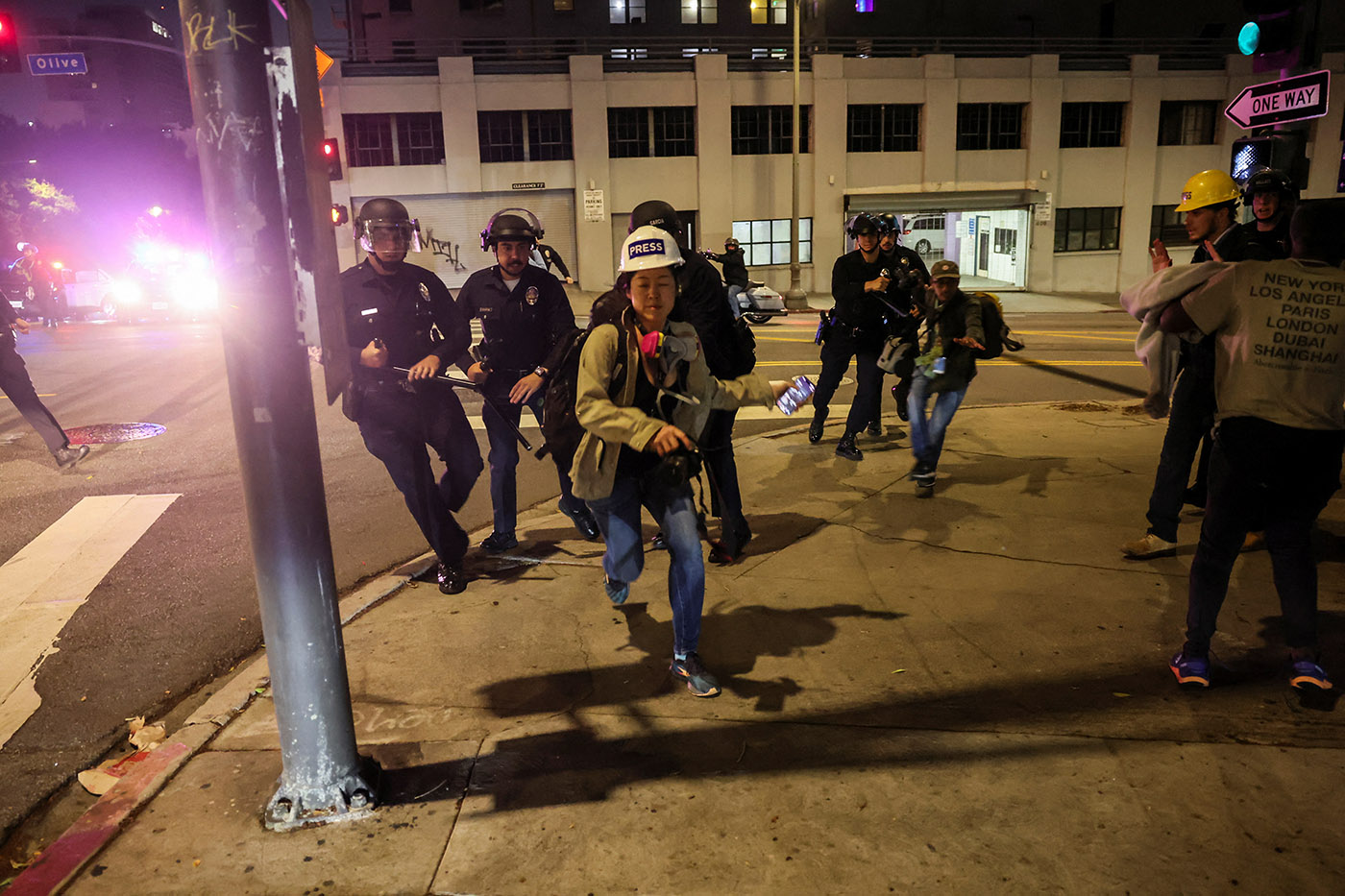By Soraya Ferdman
President Donald Trump’s re-election campaign filed a defamation lawsuit against The Washington Post over two opinion pieces published in June 2019. The suit comes just six days after Trump’s campaign filed a similar lawsuit against The New York Times.
The eight-page complaint, filed in the United States District Court for the District of Columbia, claims that two essays falsely accused his campaign of conspiring with foreign governments to interfere with the 2016 election.
In “Trump just invited another Russian attack. Mitch McConnell is making one more likely,” one of the allegedly defamatory essays, opinion writer Greg Sargent pushed for new legislation that would prevent foreign interference in future U.S. elections, and criticized Senate Majority Leader Mitch McConnell (R-Ky.) for blocking such bills. In his essay, Sargent argued that new laws were necessary given evidence that Trump was likely willing to accept help from foreign governments in future elections, pointing to special counsel Robert Mueller’s report.
“Mueller also concluded that Trump and/or his campaign eagerly encouraged, tried to conspire with, and happily profited off those efforts.” Sargent wrote, later qualifying the statement, “Mueller did not find sufficient evidence of a criminal conspiracy.”
The recent complaint singles out this statement as false and defamatory, writing, “the Mueller Report concluded there was no conspiracy between the Campaign and the Russian government.”
Whether or not Mueller’s report absolved Trump’s campaign of working with Russian oligarchs has been hotly contested. Though the President has insisted that the report proved there was no conspiracy, Mueller has testified that the report did not exonerate the president.
Trump’s campaign claims the second essay “Trump: I can win reelection with just my base,” written by opinion writer Paul Waldman, is defamatory for similar reasons. After reflecting on a number of political strategies Trump may employ in the 2020 election in his essay, Waldman posed a rhetorical question, “who knows what sort of aid Russia and North Korea will give to Trump campaign, now that he has invited them to offer their assistance?”
The word “invited” is linked to an interview between ABC News and Trump, where the president said he would consider accepting information about his political rivals from foreign nations.
As with the complaint against The New York Times, the Trump campaign acknowledges that they represent a public figure and, thus, have to prove a higher standard for defamation: so, not only that The Post published false statements, but that they published them knowingly and with the intention to harm the campaign.
Kristine Coratti Kelly, vice president of communications at The Post said in a statement on Tuesday, “It’s disappointing to see the president’s campaign committee resorting to these types of tactics, and we will vigorously defend this case.”
University of Georgia Media Law Professor Jonathan Peters explained in a string of Tweets on March 3rd why the suit was likely to fail, writing, “The Supreme Court has established broad constitutional protection for statements of opinion and for exaggerated, figurative, and hyperbolic language.” Peters wrote these protections were created to ensure “as much as possible speech about public affairs.”
Both of Trump campaign’s lawsuits were filed by Charles J. Harder, who had previously represented former professional wrestler Terry G. Bollea (Hulk Hogan) in a suit against Gawker Media. The media company lost the suit and was forced to pay $140 million in damages, which resulted in the company’s bankruptcy.
This story has an update.
Tags




